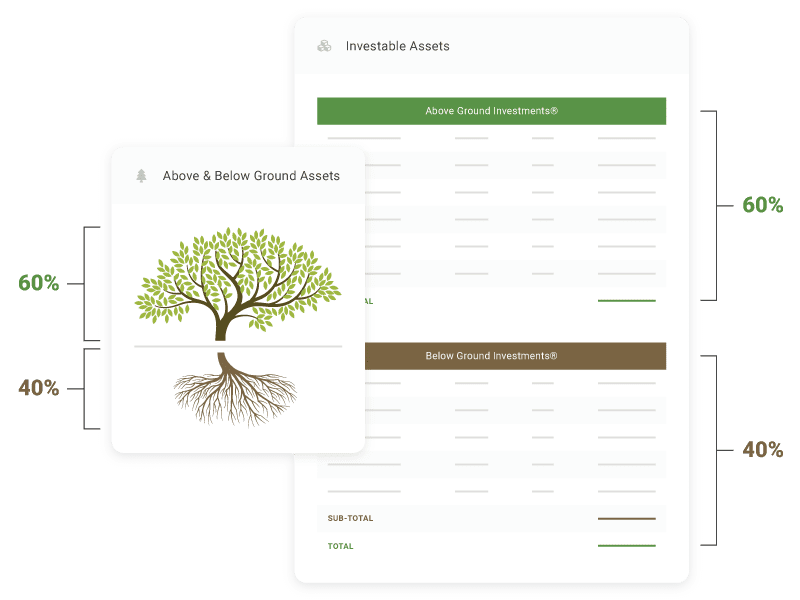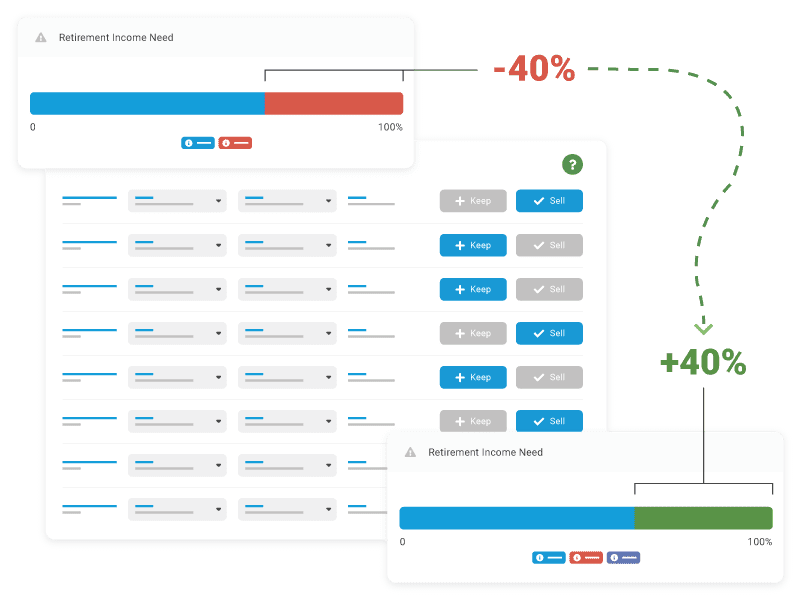Our 4 Ways to Help You Build Wealth
Are you in your 30s or 40s and looking to build your wealth? Feel like you’re getting a bit of a late start? If you answered yes, to any or both of these questions, keep reading. We have a few tips you might just find useful.
There’s no doubt about it, building wealth can be a challenge if you don’t know where to start. It may even seem like a daunting task to invest money later in life or change money habits, but building wealth later in life and working to understand wealth strategies is not impossible. In fact, one Gallup poll showed 50% of Americans begin investing after the age of 30.
So what are some things you should be doing in your 30s and 40s as you’re trying to build wealth?
Invest in Yourself
One way to begin building wealth is to take courses and learn new skills Building wealth in your 30s and 40s begins with investing in yourself. By taking courses and learning new skills, you’re building your human capital and making yourself more valuable. That’s how you’re going to earn more money and grow your wealth over time.
Of course, it’s not just about making more money. It’s also about building the skills and knowledge that will help you make better decisions with your money. That’s why investing in yourself is one of the best investments you can make. It will pay off in both the short and the long run.
Start Saving for Retirement
It’s never too late to start saving for retirement. Even if you’re in your 30s, 40s, or 50s, you can still take steps to ensure a comfortable retirement. The key is to start now and to make catch-up contributions if possible.
There are a few different retirement savings plans available, so you’ll need to do some research to figure out which one is right for you. A traditional IRA or 401(k) may be a good option if you’re already saving for retirement. However, if you’re starting from scratch, a Roth IRA may be a better choice. With a Roth IRA, you contribute after-tax dollars, but the money grows tax-free and can be withdrawn tax-free in retirement.
No matter which retirement plan you choose, the important thing is to start saving as soon as possible. If you have an employer-sponsored retirement plan, such as a 401(k), make sure you’re contributing enough to receive the employer match. If not, consider opening an IRA and contributing as much as possible. Even small contributions can add up over time, so don’t delay in getting started on your retirement savings plan.
If you’re looking for other ways to help with your retirement planning be sure to take a moment to read our articles about Planning for Retirement During Uncertain Times, Insurance and Retirement as well as Retirement: Have You Been Investing Enough?

Cryptocurrency or stocks_Kaizen Wealth
Invest Money Wisely, Diversify Your Portfolio
Many people have a 401k plan through their employer, which is great! However, that shouldn’t be the only place you’re investing your money. It’s important to diversify your portfolio across different asset types in order to minimize risk and maximize returns. For example, you could also invest in an IRA, standard brokerage account, or savings account. If you earn a side income, you can also consider taking advantage of a SEP IRA or Solo 401k.
Additionally, it’s important to have a “rainy day fund” set aside for unexpected events or expenses. Working with a financial advisor to create a diverse portfolio to set you up for success is a great way to begin building wealth in your 30s and 40s.
Choose the Right Investments for Your Age
Depending on the age you are, there are different types of ways to invest. If you haven’t started planning for retirement or have put it off until later in life there are ways to help you get closer to where you need to be.
Investing in Your 30s
When you’re in your 30s you still have years of work ahead of you. If you’re thinking about getting married, starting a family, or trying to just pay off your student loans, it’s important you don’t forget to begin to invest in your future. This includes saving the industry-recommended 10-15% of your paycheck and putting it toward your retirement. Curious about how your assets should look? Investopedia recommends: “stocks: 70% to 80% and bonds: 20% to 30%.”
Investing in Your 40s
If you’ve been unable to invest before your 40s it’s critical you begin your investing in your 40s and do so seriously. Big decisions are likely still happening at this point, trying to pay for a child’s schooling or maybe you’re focused on paying off debt. Whatever you’re trying to do, you must add your retirement plans to the mix. Investopedia recommends an asset balance of “60%-70% stocks and 30%-40% bonds.” Contribute as much as you can to a 401k or an IRA, while sticking to investments that are tried and true.

Stay disciplined with your spending_Kaizen Wealth
Stay Disciplined With Your Spending
It’s easy to get caught up in the trap of lifestyle inflation. As our incomes go up, we naturally start spending more. Before long, we’re living beyond our means and racking up debt. The key to avoiding this pitfall is to stay disciplined with spending. That doesn’t mean depriving yourself of all the joys of life – but it does mean being mindful of your budget and making wise financial choices. By staying disciplined with spending, you can pay off debt, build up your savings, and achieve financial security. And that’s a goal we can all get behind!
Where Does a Wealth Manager Come In?
A wealth manager can help you build wealth in a variety of ways. One way is by providing ways to invest your money. This can include investing in stocks, bonds, and other securities. Another way a wealth manager can help you build wealth is by providing ways to save money. This can include setting up a budget and sticking to it.
A wealth manager can also help you build wealth by providing ways to reduce your expenses. This can include advice on ways to reduce your debt and live a more frugal lifestyle. Lastly, a wealth manager can help you build wealth by providing ways to make more money. This can include finding ways to increase your income or investing in businesses and real estate. If you are in your 30s or 40s and looking for ways to build wealth, a wealth manager can help you achieve your goals.
There’s no one-size-fits-all answer to the question of how to build your wealth. However, some basic principles can help you get started on the right track. The above can help keep you motivated and focused on your long-term objectives. Finally, remember that wealth building is a marathon, not a sprint. By staying disciplined and taking things one step at a time, you can gradually build up your nest egg over time.



